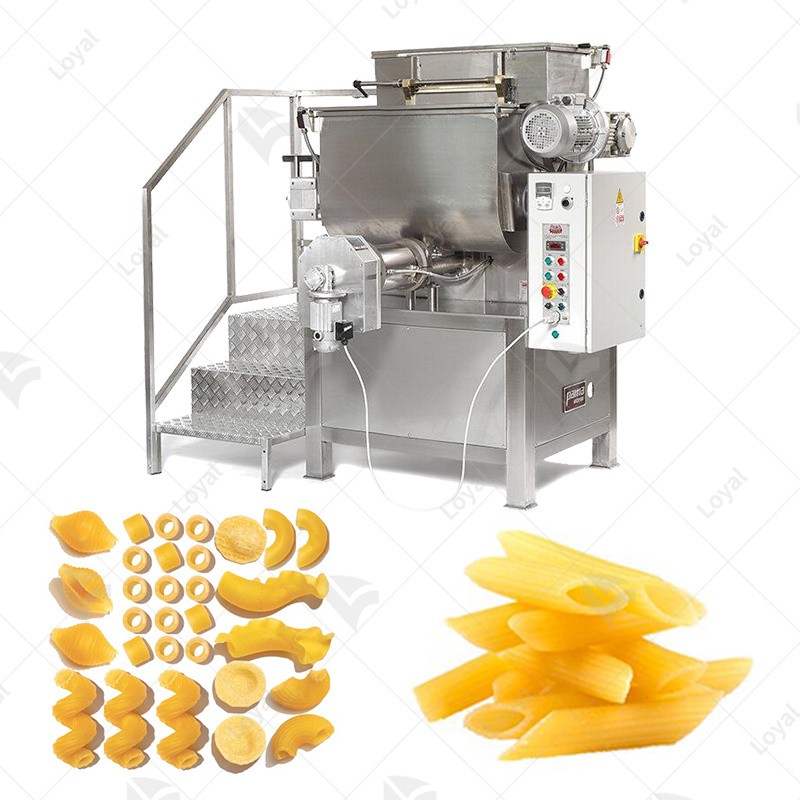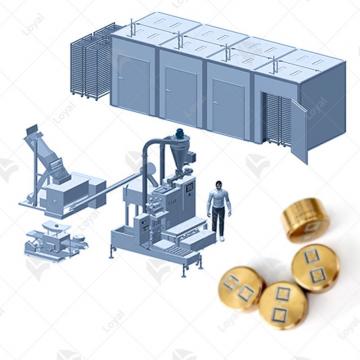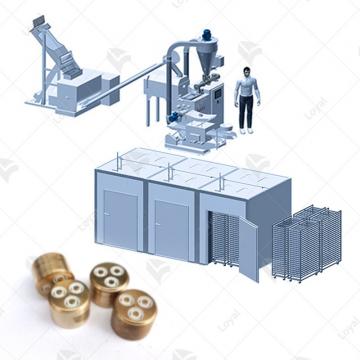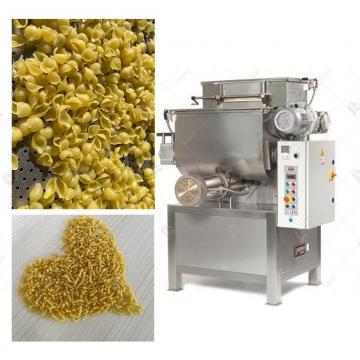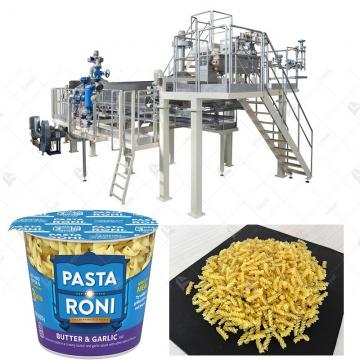Pasta Manufacturers Revolution: Total Automation and Energy Efficiency Unleashed
Pasta Manufacturers Revolution: Total Automation and Energy Efficiency Unleashed
Introduction
The evolution of pasta manufacturing has witnessed a remarkable transformation, driven by the pivotal factors of automation and energy efficiency. In today's competitive food machinery landscape, pasta manufacturers are increasingly embracing cutting-edge technologies to streamline production processes. This article delves into the revolution unfolding in pasta manufacturing, focusing on the total automation and energy efficiency that define the industry's future.The Short-Cut Pasta Production Line technology of Shandong Luoya Industrial Co., Ltd. has introduced advanced technologies from HEMAKS and Capitanio .

The Rise of Fully Automated Systems
As we explore the transition from manual to automated pasta manufacturing, it becomes evident that fully automated systems are at the forefront of this revolution. The key features of these systems include precision, speed, and reliability. Manufacturers adopting automation experience advantages such as increased production capacity, reduced labor costs, and improved product consistency. The era of hands-on pasta production is giving way to a new paradigm of efficiency.
Cutting-Edge Technology Integration
An in-depth examination of the latest technologies used in pasta manufacturing reveals a landscape enriched by robotics and artificial intelligence (AI). These technologies contribute significantly to enhanced efficiency, with robots performing tasks that were once manual, and AI optimizing production processes. Case studies from leading pasta factories underscore the successful implementations of these technologies, showcasing their transformative impact on the industry.
Energy Efficiency Measures
Pasta manufacturers are implementing a range of strategies to ensure energy efficiency throughout the production cycle. Sustainable practices, including the use of renewable energy sources and energy-efficient equipment, are becoming commonplace. Green technologies in pasta production not only contribute to environmental conservation but also prove to be cost-effective in the long run. The industry is actively embracing measures to minimize its ecological footprint.
Case Studies: Leaders in Pasta Manufacturing Innovation
Profiles of industry leaders reveal a landscape where total automation and energy efficiency are not just concepts but tangible realities. Examining renowned brands such as De Cecco, Creamette, and San Giorgio provides insights into their journeys of embracing innovation. The case studies highlight successful outcomes, the challenges faced, and valuable lessons learned, emphasizing the positive impact on both production efficiency and product quality.
Future Trends and Innovations
Looking ahead, we explore upcoming trends that will further revolutionize pasta manufacturing. Emerging technologies, including advanced robotics and AI applications, are set to redefine industry standards. The potential advancements in automation and energy efficiency hold the promise of even more sustainable and productive pasta manufacturing processes.

Conclusion
In conclusion, the journey through the revolution in pasta manufacturing showcases a dynamic industry embracing total automation and energy efficiency. From the rise of fully automated systems to cutting-edge technology integration and sustainable practices, pasta manufacturers are at the forefront of innovation. The case studies of industry leaders underscore the positive impact on both production efficiency and product quality.
As we look to the future, the trajectory of pasta manufacturing holds promise with emerging trends and continuous innovations. The call to action is not just for manufacturers but for consumers as well – to support and appreciate an industry committed to excellence, sustainability, and the pursuit of a delicious and efficiently produced staple in our diets. The pasta manufacturing revolution is not just a transformation of processes; it's a commitment to shaping a more sustainable and technologically advanced future for an age-old culinary delight.
FAQs: Common Questions About Pasta Manufacturers
Q1: What distinguishes fully automated pasta manufacturing from traditional methods?
Fully automated pasta manufacturing differs significantly from traditional methods in terms of efficiency and precision. Traditional methods often involve manual labor at various stages, while fully automated systems utilize robotics and AI to handle tasks such as mixing, extrusion, and packaging. The result is a more streamlined and consistent production process.
Q2: How do robotics and AI contribute to enhanced efficiency in pasta manufacturing?
Robotics and AI play crucial roles in enhancing efficiency in pasta manufacturing. Robots can perform repetitive tasks with precision and speed, reducing the need for manual labor. AI algorithms optimize production processes by analyzing data and making real-time adjustments, ensuring optimal resource utilization and product quality.
Q3: Are there notable sustainable practices in pasta production?
Yes, sustainability is a growing focus in pasta production. Manufacturers are adopting sustainable practices such as using renewable energy sources, implementing water recycling systems, and reducing waste. These initiatives not only contribute to environmental conservation but also align with consumer preferences for eco-friendly products.
Q4: Can you provide insights into the challenges faced by industry leaders in embracing innovation?
Industry leaders, despite their successes, face challenges in terms of initial investment costs, workforce training for new technologies, and adapting to rapidly evolving market demands. Overcoming these challenges requires a strategic approach and a commitment to continuous improvement.

Q5: How do renowned pasta brands like De Cecco and Creamette incorporate innovation into their production?
Brands like De Cecco and Creamette have embraced innovation by investing in state-of-the-art machinery and automation technologies. They focus on maintaining the quality and authenticity of their products while optimizing production processes for efficiency. Innovation, for these brands, is a means to meet consumer expectations and stay competitive.
Q6: What future trends are expected to shape the pasta manufacturing industry?
The future of pasta manufacturing is poised for exciting developments, including advanced robotics, AI-driven predictive maintenance, and sustainable packaging solutions. The industry is likely to witness further integration of smart technologies to enhance traceability and quality control, ensuring a progressive and technologically advanced landscape.

